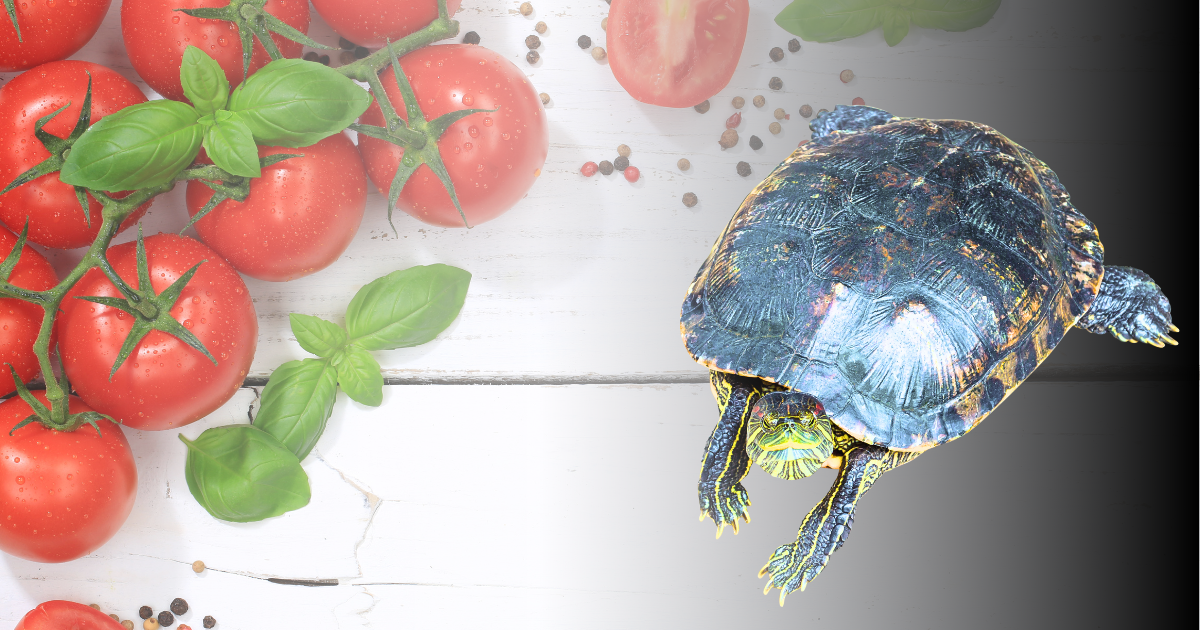 Turtles are known for their varied diet, which includes a variety of fruits and vegetables.
Turtles are known for their varied diet, which includes a variety of fruits and vegetables.
One of the most commonly asked questions is whether turtles can eat tomatoes. Tomatoes are a staple in many households and are often used in salads, sandwiches, and other dishes.
However, when it comes to feeding turtles, it’s important to know whether tomatoes are safe for them to consume.
Tomatoes are a rich source of vitamins and minerals, including vitamin C, potassium, and lycopene. These nutrients are essential for maintaining a turtle’s overall health and well-being.
However, not all turtles can digest tomatoes, and feeding them to your pet turtle can cause health problems.
Key Takeaways
- While tomatoes are packed with essential vitamins and minerals, not all turtles can digest them.
- If your turtle can eat tomatoes, they can provide a healthy addition to their diet.
- However, feeding tomatoes to turtles can also pose some risks, so it’s important to proceed with caution and consult with a veterinarian.
Nutritional Value of Tomatoes for Turtles
Vitamins and Minerals in Tomatoes
Tomatoes are a great source of vitamins and minerals that are essential for a turtle’s health. They are particularly rich in vitamins C and A, which help boost the immune system and promote healthy skin and eyesight.
Tomatoes also contain potassium, which helps regulate blood pressure and maintain healthy muscles and nerves.
Additionally, they are a good source of calcium, which is important for strong bones and teeth.
Tomatoes as a Source of Fiber and Water
In addition to vitamins and minerals, tomatoes are also a great source of fiber and water.
Fiber helps maintain healthy digestion, while water helps keep turtles hydrated and maintain proper kidney function. Tomatoes are especially beneficial for turtles that are prone to dehydration or constipation.
When feeding tomatoes to turtles, it’s important to keep in mind that the sugar content can vary depending on the variety and ripeness of the tomato. Ripe tomatoes tend to be higher in sugar than green or unripe tomatoes, so it’s best to feed them in moderation.
Risks of Feeding Tomatoes to Turtles
Toxicity of Tomatoes to Turtles
While tomatoes are not toxic to turtles, they can have negative effects on their health if fed in large quantities.
Tomatoes contain solanine, an alkaloid that can cause digestive issues and affect the immune system of turtles.
Additionally, tomato leaves, vines, and stems contain higher levels of solanine than the fruit itself, and should never be fed to turtles as they can be toxic.
Digestive Issues Caused by Tomatoes
Tomatoes are high in oxalates, which can cause digestive issues in turtles if consumed in large quantities.
Oxalates can bind with calcium in the turtle’s diet, leading to calcium deficiency and health problems.
Furthermore, tomatoes are acidic and can cause bloating, vomiting, and diarrhea in turtles if fed in excess.
It’s important to note that while red-eared sliders and other omnivorous turtles may enjoy the occasional treat of ripe cherry tomatoes, it’s best to avoid feeding green tomatoes, which contain higher levels of solanine.
Additionally, turtles that are primarily herbivores, such as tortoises, should not be fed tomatoes at all.
If you do choose to feed your turtle tomatoes, it’s important to do so in moderation and as part of a balanced diet.
Tomatoes should never replace the staple foods in your turtle’s diet, such as leafy greens and protein sources like crickets.
If your turtle experiences any health issues after consuming tomatoes, it’s recommended to consult a veterinarian.

I have a big soft spot for turtles. I grew up near a pond that was full of snapping turtles. Now and then I’d see them crawling across our front yard, which was always exciting.
Now I write about turtles for this website as a fun side hobby. Glad you stopped by!

